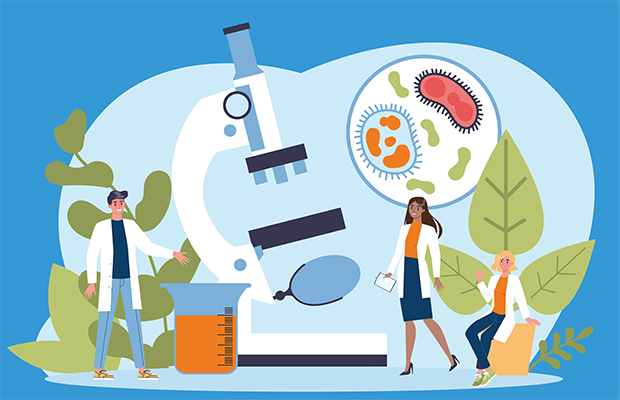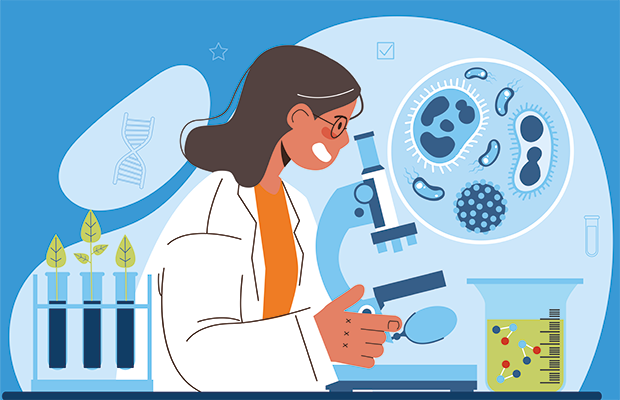Original post by VoiidDev
In therapeutic cloning an embryo gets formed with the same genes as a patient. Can the embryonic stem cells only differentiate into the type of cell they were derived from or all types of cells?
They can differentiate into any kind of cell

Effectively what is done is that an egg cell is given Human DNA and stimulated to divide. We use a normal human cell because they have the right number of chromosomes, whereas an egg cell only has half the usual number (as they usually divide into an embryo after fertilisation with a sperm). It also leads to an identical 'clone' rather than a mix of chromosomes you normally get. You'll note that the same technique is also used for adult cell cloning, to produce an animal clone.
I'm a bit rusty but I think basically the egg cell divides to form loads of embryonic stem cells. These have the ability to differentiate into any kind of cell, hence the advantage over adult stem cells (which are found in bone marrow and can only differentiate into some specific cells). It's basically the same as what happens after human reproduction, which is why there are ethical issues regarding therapeutic cloning.
There's some really good BBC Bitesize sites for this, if you'd care to search them up, too.
Hope this helps! Just thought I'd go into a bit more detail, so apologies if you knew it all already haha. Best of luck with your GCSEs

Quick Reply
Related discussions
- GCSE Exam Discussions 2024
- GCSE Biology Study Group 2022-2023
- Retaking GCSES
- How much Maths in Biology and Psychology A Level?
- GCSE Exam Discussions 2023
- 7 GCSES?
- What university has the lowest GCSE requirements for medicine?
- Undergraduate
- Can I do biological sciences without the required subjects?
- GCSE Biology
- Science Gcse
- A Level Biology
- GCSE Subjects to go to medical school
- is English lit a good a level if i want to study psychology at uni?
- Which A-Level Biology should I do? Edexcel A/B
- A level subject choices between Business, Biology and Law
- How many GCSEs are you getting?
- GCSE Biology Study Group 2023-2024
- Should I learn triple science content over the summer before A-Levels?
- Quizlet flashcards
Latest
Trending
Last reply 1 day ago
A-level Biology Study Group 2023-2024Last reply 5 days ago
GCSE Biology Study Group 2023-2024Last reply 1 week ago
Need detailed and specific OCR Biology notes before alevel exam.Last reply 1 week ago
SNAB biology- Access to end-of-topic tests/summaries 2024Last reply 2 weeks ago
a level biology mitosis questionLast reply 3 weeks ago
Biology surface area to volume rationLast reply 3 weeks ago
aqa biology aslevel calculation question FVCPosted 1 month ago
SNAB biology 2024 scientific articleLast reply 1 month ago
Resources for edexcel a (snab) a level biology?Last reply 1 month ago
Im losing my mind over this and I don't know where I keep going wrongLast reply 1 month ago
Aqa biology a level paper 3 2023Last reply 2 months ago
AQA A Level Biology Paper 1 2018Last reply 3 months ago
how do you do this please explain stepsLast reply 5 months ago
biology math question ratios alevel aqaLast reply 6 months ago
biology aqa alevel proteins question past paperTrending
Last reply 1 day ago
A-level Biology Study Group 2023-2024Last reply 5 days ago
GCSE Biology Study Group 2023-2024Last reply 1 week ago
Need detailed and specific OCR Biology notes before alevel exam.Last reply 1 week ago
SNAB biology- Access to end-of-topic tests/summaries 2024Last reply 2 weeks ago
a level biology mitosis questionLast reply 3 weeks ago
Biology surface area to volume rationLast reply 3 weeks ago
aqa biology aslevel calculation question FVCPosted 1 month ago
SNAB biology 2024 scientific articleLast reply 1 month ago
Resources for edexcel a (snab) a level biology?Last reply 1 month ago
Im losing my mind over this and I don't know where I keep going wrongLast reply 1 month ago
Aqa biology a level paper 3 2023Last reply 2 months ago
AQA A Level Biology Paper 1 2018Last reply 3 months ago
how do you do this please explain stepsLast reply 5 months ago
biology math question ratios alevel aqaLast reply 6 months ago
biology aqa alevel proteins question past paper



